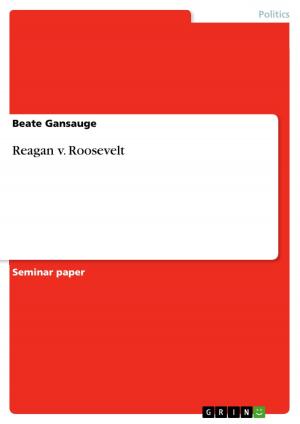Can static type systems speed up programming? An experimental evaluation of static and dynamic type systems
Nonfiction, Computers, Programming, Software Development| Author: | Sebastian Kleinschmager | ISBN: | 9783656256595 |
| Publisher: | GRIN Publishing | Publication: | August 14, 2012 |
| Imprint: | GRIN Publishing | Language: | English |
| Author: | Sebastian Kleinschmager |
| ISBN: | 9783656256595 |
| Publisher: | GRIN Publishing |
| Publication: | August 14, 2012 |
| Imprint: | GRIN Publishing |
| Language: | English |
Master's Thesis from the year 2011 in the subject Computer Science - Software, grade: 1,0, University of Duisburg-Essen (Institute for Computer Science and Business Information Systems), course: Informatik - Empirische Softwareforschung, language: English, abstract: Type systems of programming languages are a much discussed topic of software engineering. There are many voices arguing towards static as well as dynamic type systems, although their actual impact on software development is rarely evaluated using rigorous scientific methods. In the context of this work, a controlled experiment with 36 participants was conducted which tried to compare the performance of software developers using a static and a dynamic type system for the same tasks using an undocumented API. The two programming languages used were Java and Groovy. The experiment and its results are analyzed and discussed in this thesis. Its main hypothesis was that a static type system speeds up the time developers need to solve programming tasks in an undocumented API. The main results of the experiment speak strongly in favor of this hypothesis, because the static type system seems to have a significantly positive impact on the development time.
Sebastian Kleinschmager is a passionate software engineer from Germany who has a special interest in creating a scientific foundation for his field. During his studies of applied computer science (Bachelor's degree) and business information systems (Master), he focused his research on conducting empirical experiments to evaluate programming techniques. Apart from his academic research, during his day-to-day job, he specializes in software development using the .NET Framework and the newest web technologies, putting theory into practice.
Master's Thesis from the year 2011 in the subject Computer Science - Software, grade: 1,0, University of Duisburg-Essen (Institute for Computer Science and Business Information Systems), course: Informatik - Empirische Softwareforschung, language: English, abstract: Type systems of programming languages are a much discussed topic of software engineering. There are many voices arguing towards static as well as dynamic type systems, although their actual impact on software development is rarely evaluated using rigorous scientific methods. In the context of this work, a controlled experiment with 36 participants was conducted which tried to compare the performance of software developers using a static and a dynamic type system for the same tasks using an undocumented API. The two programming languages used were Java and Groovy. The experiment and its results are analyzed and discussed in this thesis. Its main hypothesis was that a static type system speeds up the time developers need to solve programming tasks in an undocumented API. The main results of the experiment speak strongly in favor of this hypothesis, because the static type system seems to have a significantly positive impact on the development time.
Sebastian Kleinschmager is a passionate software engineer from Germany who has a special interest in creating a scientific foundation for his field. During his studies of applied computer science (Bachelor's degree) and business information systems (Master), he focused his research on conducting empirical experiments to evaluate programming techniques. Apart from his academic research, during his day-to-day job, he specializes in software development using the .NET Framework and the newest web technologies, putting theory into practice.















